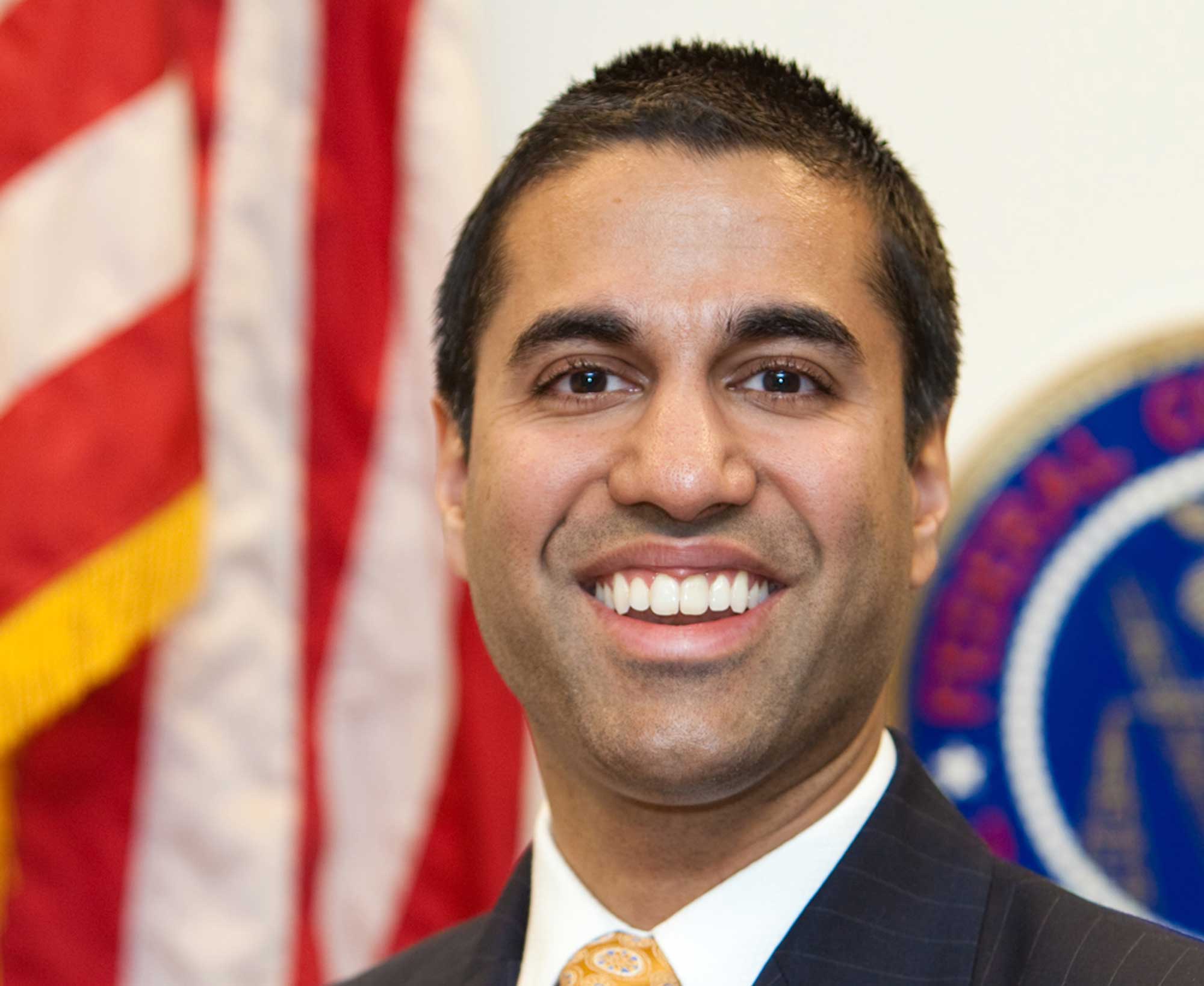IG (Again) Finds No Evidence of Pai Mishandling of Sinclair-Tribune

The smarter way to stay on top of broadcasting and cable industry. Sign up below
You are now subscribed
Your newsletter sign-up was successful
The FCC's Inspector General has concluded his follow-up investigation on whether FCC Chairman Ajit Pai acted improperly in his handling of the Sinclair-Tribune deal review and communications about that process and found no evidence that had been the case.
That comes as the FCC will be asked to review another proposed purchase of the Tribune stations, this time from Nexstar.
That came in IG David Hunt's report, which was concluded at the end of last month.
"Our investigation did not reveal evidence that Chairman Pai acted improperly with respect to the request from Congress that he disclose information related to his interactions with the White House regarding the proposed merger," the report concluded, "nor did he make material omissions at the July 25, 2018, House Energy and Commerce Committee hearing or at any other time related to the proposed Sinclair-Tribune merger. Further, our investigation did not reveal evidence of any other White House communications with FCC staff."
Pai had promised in a House hearing in July to keep the Hill informed of any communications from the White House about the deal, "consistent with the Commission’s ex parte rules," which the IG said he had done.
Ranking Energy & Commerce Committee member Frank Pallone Jr. (D-N.J.), who got that July assurance, had asked Hunt to investigate what he said was Pai's failure to disclose a conversation with White House General Counsel Don McGahn about the Sinclair-Tribune merger, suggesting it could have been a "coverup."
"Although Chairman Pai could have disclosed his discussion with White House Counsel McGahn in response to this question, we do not believe that Chairman Pai made a 'material omission' or failed to 'disclose information related to the interactions between the White House and Chairman Pai or his office on the Sinclair-Tribune merger' during this exchange with Ranking Member Pallone," said Hunt in the report.
“We are pleased that the Office of Inspector General has confirmed for a second time that there were no improper actions taken during the Sinclair-Tribune review process and that the investigation has concluded,” said Brian Hart, director of the FCC’s Office of Media Relations, in a statement.
The smarter way to stay on top of broadcasting and cable industry. Sign up below
The first time was an IG investigation into whether Pai had favored the deal—the report concluded that he had not, which appeared to be confirmed by the fact that he recommended designating the deal for hearing before an FCC judge saying there were concerns Sinclair had mislead the FCC about the deal.
“While we appreciate the Inspector General’s office looking into this matter, we do not agree with its finding that Pai did not need to disclose this information in the public docket based on his commitment to Ranking Member Pallone," said a Democratic spokesperson for the Energy & Commerce Committee. "Regardless, as Democrats move into the Majority, the Committee will expect witnesses to follow through on their commitments and respond fully to the questions asked by its members.”
Andrew Schwartzman of the Georgetown University Law Center's Institute for Public Representation, who has represented groups challenging consolidation in the broadcast industry, saw the report differently. "The Inspector General's report today demonstrates that Chairman Pai lacked candor in his Congressional testimony by omitting reference to the fact that he spoke to the White House Counsel concerning Sinclair," said Schwartzman.
Pallone had asked during the July 25 hearing “If the President or anyone in the White House discusses or has discussed the Sinclair-Tribune merger with you or anyone at the FCC, will you commit to disclosing that in the public docket?"
Pai said yes, with the caveat that "we have ex parte rules, because this is now a restricted proceeding. We are limited in what information we can receive and what we can put on the record. But consistent with our restricted ex parte rules, we would be happy to accommodate to the extent we can.”
"Even though the conversation with McGahn had taken place on July 17, eight days before the hearing, Pai did not disclose his discussion with McGahn," Pallone wrote the inspector general. "Since the discussion occurred prior to the adoption of the Sinclair Hearing Designation Order (HDO), Pai’s reference to 'restricted ex parte rules' is irrelevant."
Pallone also asked the IG to look at phone records of other commissioners and staff to make sure that they did not have any White House communications that were not disclosed.
Contributing editor John Eggerton has been an editor and/or writer on media regulation, legislation and policy for over four decades, including covering the FCC, FTC, Congress, the major media trade associations, and the federal courts. In addition to Multichannel News and Broadcasting + Cable, his work has appeared in Radio World, TV Technology, TV Fax, This Week in Consumer Electronics, Variety and the Encyclopedia Britannica.

